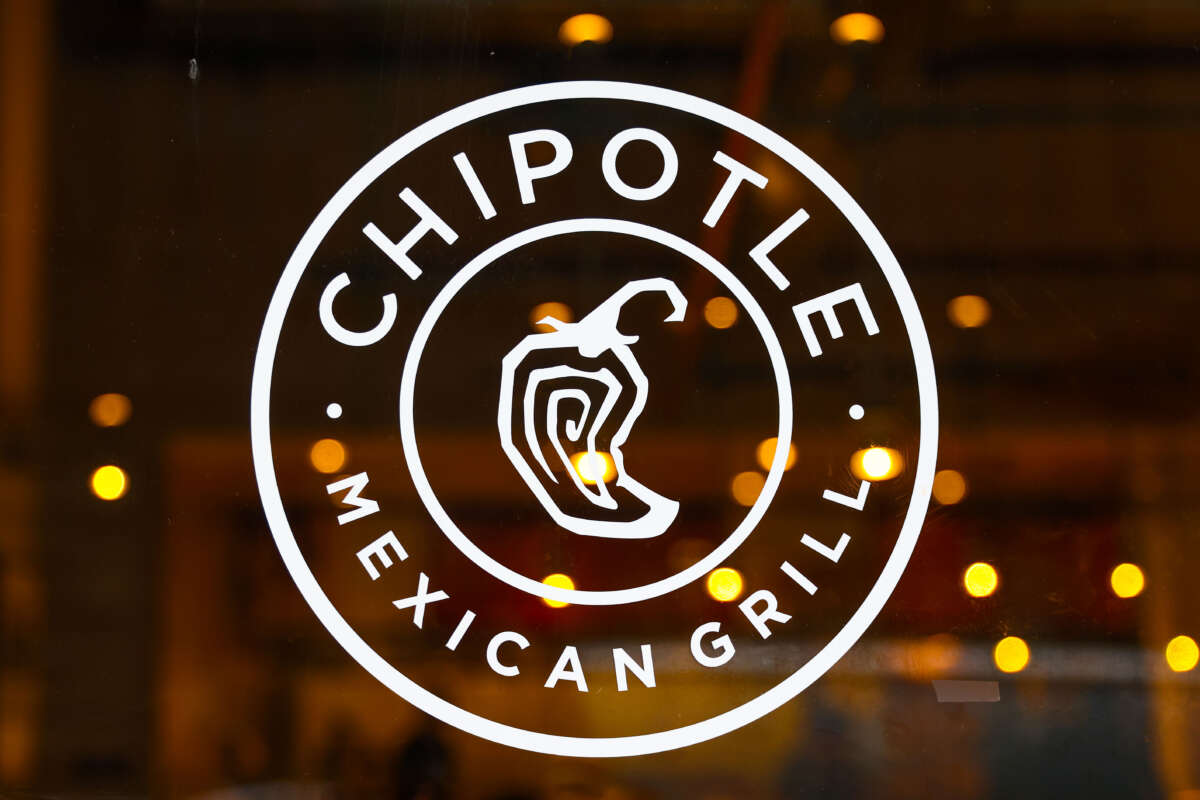Support justice-driven, accurate and transparent news — make a quick donation to Truthout today!
Chipotle must pay nearly a quarter of a million dollars to workers in Maine after labor officials determined that the company illegally closed their store after workers announced their intent to unionize last year.
The company will pay out $240,000 in front pay and back pay to 24 workers whose store was closed in July. Front pay is a type of remedy for workers issued when there is no order to immediately rehire the workers. The company will also have to add the workers to a preferential hiring list, post notice of the company’s alleged violation, and notify workers of their rights in 40 stores across the region, according to a National Labor Relations Board (NLRB) spokesperson.
The Augusta workers filed to form the company’s first-ever union last June, hoping to join the wave of workers unionizing at household brand chains like Starbucks, but the company abruptly shuttered the store in July and barred workers from working at other locations, according to the union.
Later, workers in Lansing, Michigan, voted to form the company’s first union. The restaurant currently remains the only unionized Chipotle location — likely in part because the Lansing union was also met with fierce resistance from the company.
In November, the NLRB determined that the shuttering of the Augusta store constituted illegal union busting, and an NLRB regional director wrote in a complaint that it constituted a “serious and substantial” interference with the union drive.
The settlement, which the union says was negotiated over seven months, has been dubbed as a “huge win” by Chipotle United.
“This settlement is a huge win. Chipotle just got put on notice — union busting will not be tolerated and there’s no way around it. The Movement ran out [former Starbucks CEO] Howard Schultz and we’ll do the same to any CEO that thinks they are going to break the law and quiet the voice of the People,” Chipotle United wrote on Twitter. “Corporate criminals will be held responsible.”
Former Augusta employee and union organizer Brandi McNease reiterated that the settlement represents a win for workers across the country who are in the midst of similar union fights.
“This isn’t just a victory for Chipotle United,” McNease said in a statement shared by the Maine AFL-CIO. “It’s a win for food service workers across the country. It sends a message to corporations that shutting down a store and blackballing workers didn’t work for Chipotle and it won’t work for them either.”
The company said that it agreed to the settlement because the resources it would spend fighting the allegations would have “far outweighed” the payout, per Restaurant Dive. This is notably different from Starbucks’s approach to expend likely millions of dollars fighting the union and labor officials at every possible juncture, as Restaurant Dive noted.
Media that fights fascism
Truthout is funded almost entirely by readers — that’s why we can speak truth to power and cut against the mainstream narrative. But independent journalists at Truthout face mounting political repression under Trump.
We rely on your support to survive McCarthyist censorship. Please make a tax-deductible one-time or monthly donation.
